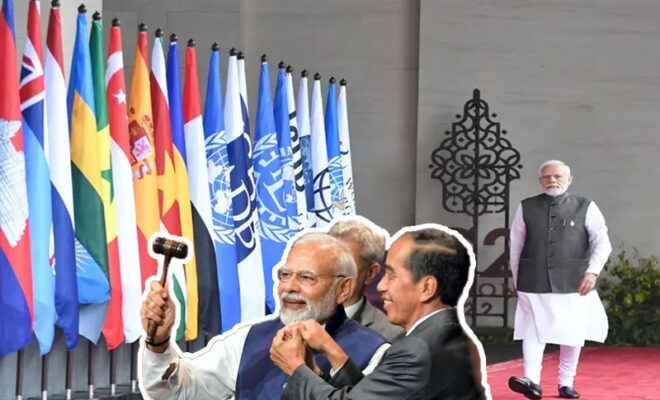G20 Summit Announces India’s Arrival On Global Stage At Prominent Position

Last updated on November 19th, 2022 at 04:13 pm
India’s worldwide trend-defying economic trajectory and a supportive external environment support its growing geopolitical weight.
The agenda for the G20 meeting in Bali, Indonesia, which brought together the 20 major economies representing more than 80% of the world’s GDP, 75% of its commerce, and 60% of its population, nearly fell through due to the stark divisions among its participants brought on by the conflict in Ukraine.
The contribution made by India is significant in the development of a final joint statement.
Russia was against “politicization” of the summit and condemned what it dubbed the West’s “hybrid war,” but Western states were adamant that a strong denunciation of Russia’s invasion of Ukraine be integrated into the result declaration. Indonesia, the hosts, was left asking for cooperation.
Positions were even more entrenched throughout the days of negotiations leading up to the Bali summit.
It appeared like the G20 might fail to issue a joint statement for the first time since its establishment as Beijing came out against an outright condemnation of Moscow.
India had a significant impact in this. The Indian team, under the direction of proposals from Prime Minister Narendra Modi, acted as a broker and was successful in bringing about agreement among opposing groups on the draught communique’s phrasing. The officials reached a negotiated agreement on Monday.
The Bali Declaration, released following the summit on Wednesday, rejected the “use or threat of use of nuclear weapons” and emphasized the importance of diplomacy, crisis management, and peaceful conflict resolution.
The last statement parallels Modi’s arguments with Putin in Samarkand in September, which were taking place concurrently with the SCO conference.
The clever framing can be read as a universal condemnation of war as well as a critique of Russia’s behavior. The meaning is vague. India is a pro in this field.



